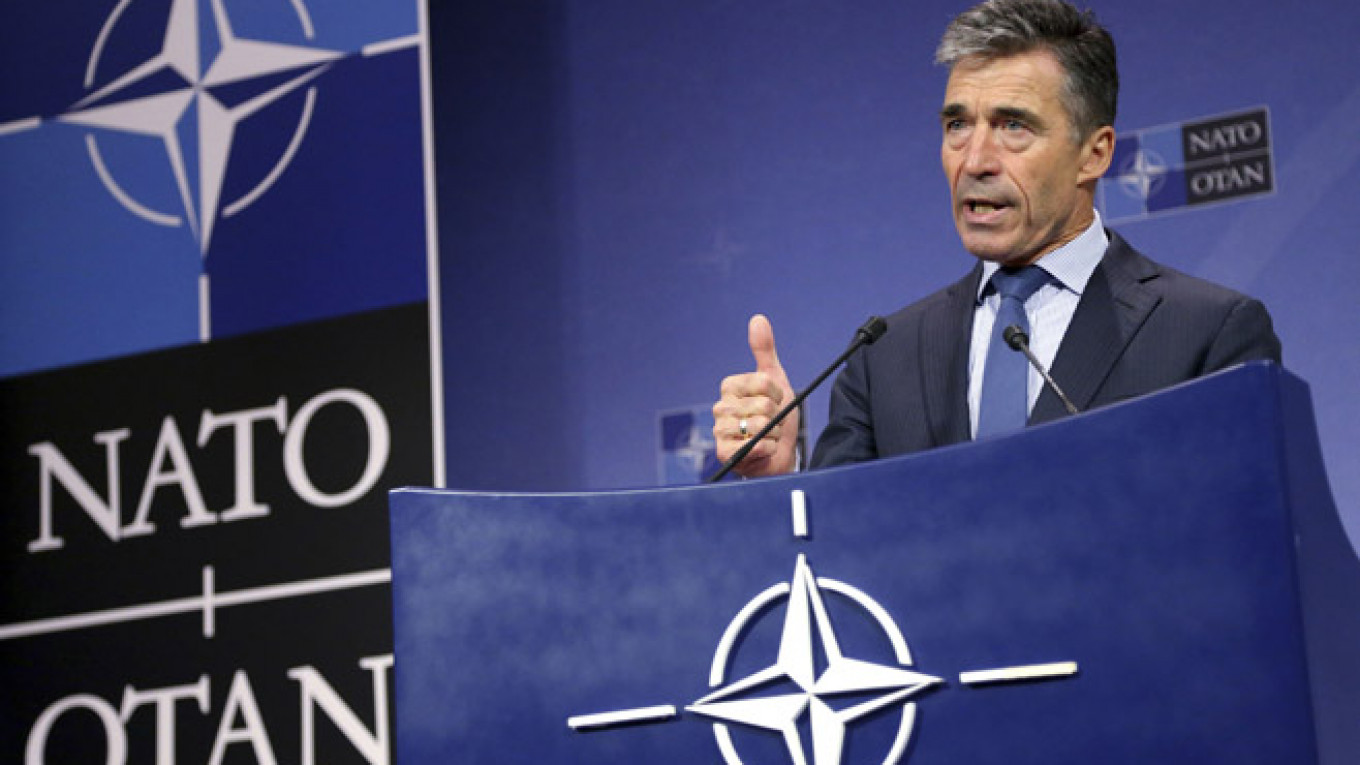The Georgian parliament ratified its association agreement with the EU yesterday. But although it would appear that Georgia is becoming ever more integrated with Europe, it is unlikely to secure NATO membership anytime soon.
Russia's heavy-handed tactics in Ukraine have made NATO understandably wary of incorporating formerly Soviet states. And, while NATO may be right to keep only limited contact with potentially risky Georgia, in the long run it may damage Georgians' faith in the West and precipitate a turn toward Moscow.
If NATO does not bring more to the table, public perceptions of both NATO and the EU could turn sour in Georgia.
Georgia officially requested NATO membership at the 2002 NATO summit in Prague. The late Georgian President Eduard Shevardnadze, respected in the West for his contribution to the end of Cold War as the U.S.S.R.'s foreign minister, forecasted that Georgia would "knock at NATO's door" by 2005. That door actually opened for Georgia at the 2008 NATO Bucharest summit, which officially declared that Georgia "will become a member of NATO."
Since then little progress has been made. The crisis in Ukraine has led Georgia's political establishment to rightly believe that NATO would be wary of new members, especially formerly Soviet nations. But Tbilisi is also acutely conscious that its lack of any formal military alliances increases its vulnerability to Russian aggression.
According to the public opinion poll commissioned this April by the Georgian office of the National Democratic Institute, the number of those who consider Russia a "real and existing threat" to Georgia has increased from 36 percent to 50 percent. The Georgian government's stated goal to join NATO garnered 72 percent support.
However, about 65 percent of those polled are either uncertain about Georgia's chances of joining NATO or think it will never happen. The refusal to grant Georgia a NATO membership action plan, meanwhile, has increased the number of Euroskeptics in the country. They believe that Georgia has sacrificed too much in its quest to become closer to the European Union and NATO.
They argue that Georgia deserves better treatment from NATO given Georgia's sizable contribution as a nonmember state to NATO security operations. More than 700 Georgian servicemen out of a 1,600 strong contingent will stay in Afghanistan till 2015 after the completion of NATO's ISAF mission there. Moreover, Georgia has shown remarkable progress in the implementation of NATO programs by bringing the national defense system in line with NATO standards.
But despite these moves by Tbilisi, NATO remains reluctant to accelerate the membership process.
NATO, with its multiple strategic goals and problems at international and regional levels, has no doubt meticulously calculated the pluses and minuses that Georgia's acceptance might bring.
And even if we put aside the much talked of "Russian factor" reported to be one of the main obstacles, the state of Georgian economics, democracy and political stability is still far from NATO standards. NATO's choice to instead focus on gradually expanding bilateral cooperation reaps rewards without the headaches a closer alliance would bring.
The approach is effective and it is even justified from NATO's own standpoint when considering the currently unstable international situation. However, NATO should pay greater attention to Georgia's internal social and political processes. If NATO does not bring more to the table, public perceptions of both NATO and the EU could turn sour.
Pro-Russian forces in Georgia are already trying to exploit this issue. According to them, Georgia's aspirations for NATO and EU membership threaten Georgia's territorial integrity, as neither organization looks favorably on Georgia's desire to retake the breakaway republics of Abkhazia and South Ossetia.
And until Georgia makes a definite choice either way, it will have to contend with Russian pressure. The 2012 change in Georgian leadership reduced tensions in Russian-Georgian relations but it did not solve the NATO problem.
Moscow does not seriously accept Tbilisi's assurance that Georgia can be an equally reliable partner for both Russia and the West. If NATO and the EU truly desire a partnership with Georgia, they will need to offer more than limited agreements if they want to counter the influence of pro-Russian forces.
Zaal Anjaparidze is an independent analyst in Georgia.
A Message from The Moscow Times:
Dear readers,
We are facing unprecedented challenges. Russia's Prosecutor General's Office has designated The Moscow Times as an "undesirable" organization, criminalizing our work and putting our staff at risk of prosecution. This follows our earlier unjust labeling as a "foreign agent."
These actions are direct attempts to silence independent journalism in Russia. The authorities claim our work "discredits the decisions of the Russian leadership." We see things differently: we strive to provide accurate, unbiased reporting on Russia.
We, the journalists of The Moscow Times, refuse to be silenced. But to continue our work, we need your help.
Your support, no matter how small, makes a world of difference. If you can, please support us monthly starting from just $2. It's quick to set up, and every contribution makes a significant impact.
By supporting The Moscow Times, you're defending open, independent journalism in the face of repression. Thank you for standing with us.
Remind me later.






